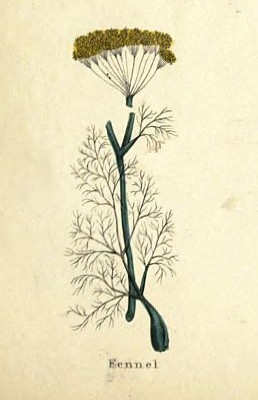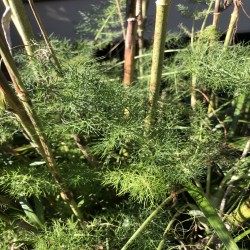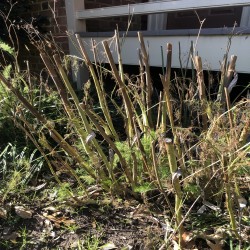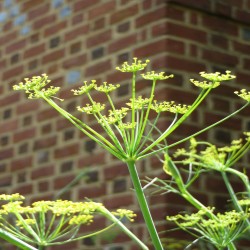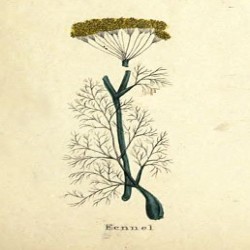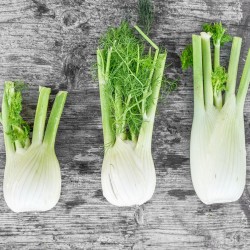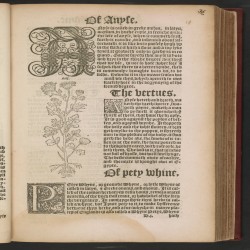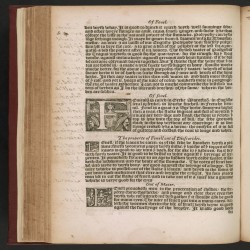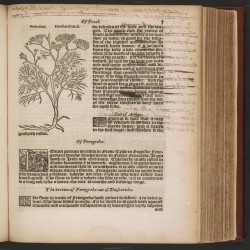FENNEL.
“Every garden affords this so plentifully, that it needs no description.
[Government and virtues] One good old fashion is not yet left off, viz.to boil Fennel with fish; for it consumes that phlegmatic humour, which fish most plentifully afford and annoy the body with, though few that use it know wherefore they do it; I suppose the reason of its benefit this way is because it is an herb of Mercury, and under Virgo, and therefore bears antipathy to Pisces. Fennel is good to break wind, to provoke urine, and ease the pains of the stone, and helps to break it. The leaves or seed, boiled in barley water and drank are good for nurses, to increase their milk, and make it more wholesome for the child. The leaves, or rather the seeds, boiled in water, stays the hiccough, and takes away the loathings which oftentimes happen to the stomachs of sick and feverish persons and allays the heat thereof. The seed boiled in wine and drank, is good for those that are bitten with serpents, or have eaten poisonous herbs, or mushrooms. The seed and the roots much more, help to open obstructions of the liver, spleen, and gall, and thereby help the painful and windy swellings of the spleen, and the yellow jaundice; as also the gout and cramps. The seed is of good use in medicines to help shortness of breath and wheezing by stopping of the lungs. It helps also to bring down the courses, and to cleanse the parts after delivery. The roots are of most use in physic drinks, and broth that are taken to cleanse the blood, to open obstructions of the liver, to provoke urine, and amend the ill colour in the face after sickness, and to cause a good habit through the body. Both leaves, seeds, and roots thereof are much used in drink or broth, to make people more lean that are too fat. The distilled water of the whole herb, or the condensate juice dissolved, but especially the natural juice, that in some counties issues out hereof of its own accord, dropped into the eyes, cleanses them from mists and films that hinder the sight. The sweet Fennel is much weaker in physical uses than the common Fennel. The wild Fennel is stronger and hotter than the tame, and therefore most powerful against the stone, but not so effectual to encrease milk, because of its dryness.”
Source: The Project Gutenberg EBook of The Complete Herbal, by Nicholas Culpeper, [74]
